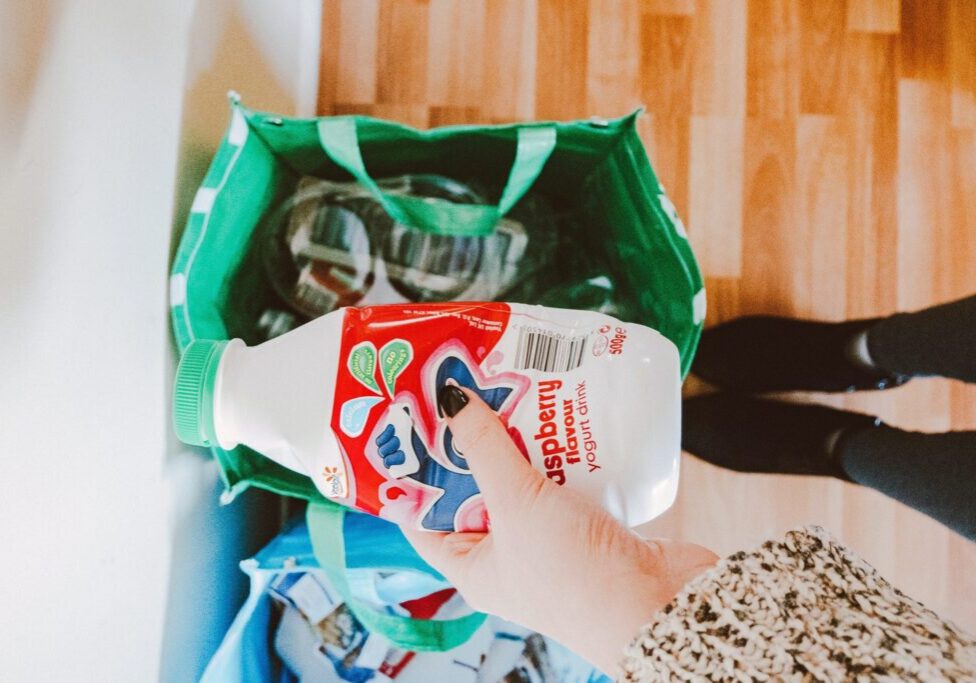Over 50 billion plastic water bottles are sold each year, and each bottle takes more than 400 years to biodegrade. Would it be great to eliminate non-recyclable plastic entirely? Absolutely. Is it realistic? No, it really isn’t.
Does that mean we shouldn’t be conscientious and intentional about recycling what we can? Of course not. We all know we should be doing it. We all already get most of the obvious bottles and cans in the right bin. And yet, we all have a little room for improvement.
With a little more attention and care, you can master the plastics number system for your area, get your recycling clean, empty, and dry, and help your whole office with common recycling questions. With plastic production expected to triple by 2050, efforts to improve recycling habits are important to implement today.
Recycling 101
Before we talk about improving our recycling habits, let’s make sure we’re on the same page regarding the basics and what’s even eligible for collection. The major recyclable categories are bottles, cans, paper, and cardboard. These shapes and formats are generally safe for recycling, though it’s important to check with your local municipality about what they do and do not accept in each category. For example, even if they have what appears to be the chasing arrows symbol on them, not all plastics are eligible for recycling.
According to Waste Management, there are three general rules to remember when asking yourself some common recycling questions:
- Recycle clean bottles, cans, paper, and cardboard (these are the categories with the biggest recyclable impact)
- Keep food and liquid out of your recycling (dry, clean, and empty is a good thought when it comes to cleaning recyclables)
- No loose plastic bags and no bagged recyclables (bags are a BIG no-no as they frequently jam sorting machines)
We all hesitate when choosing between the recycling or trash bin for an oddly-shaped bottle or a slightly greasy pizza box. Make it easy to recycle in your workplace by posting this printable guide near the bins in your office.
Tips for Better Recycling
First and foremost, make it easy. Anywhere you have a trash can, add a recycling bin. If it’s just as easy to recycle something as it is to throw it away, there will be no excuse not to make the right choice.
Pay attention to the numbers on the plastic items you’re considering recycling. Generally, the higher the number, the less recyclable it is. For example, 1 and 2 are the most commonly recycled (soda bottles, detergent containers, etc.). Though other numbers are less widely accepted, that doesn’t mean that your curbside pickup won’t take some of them. For more information on what kind of plastic each number corresponds to, check out this guide from Good Housekeeping.
For office-specific items like e-waste that require special drop off, upcycle a cardboard box to collect them and then schedule pickups or take turns bringing them to the appropriate locations. Like we do with the bottle counter on Bevi filtered water dispensers, keep track of these specialty items that are diverted from the landfill and provide an occasional update with positive reinforcement.
Beware of flexible packaging like chip bags, lined coffee cups, and juice pouches. These are often made of multiple materials which make them ineligible for recycling. Conversely, something like an envelope or a pasta box with a plastic window can be recycled.
Don’t worry if something isn’t spotless. While recyclables should be dry and as free of food waste as possible, this shouldn’t be as cumbersome as actually doing the dishes. The main thing is to do your best to get anything out that might contaminate other recyclables.
The Benefits of Recycling
At the end of the day, don’t take a shot on something just because you hope it’s recyclable. Recycling advocates call this “wish-cycling,” and as mentioned earlier, non-recyclable items can contaminate recyclable products, add increased costs to sorting centers, and even break recycling machinery. Have something you think should be recyclable but aren’t sure if it should go curbside? Consult a resource like Earth911.org to find out where and how it can be recycled.
While it will take more than your office recycling program to truly make a difference in the battle against plastic, there are plenty of ways to improve your personal recycling habits and contribute to the solution in the meantime.
We take the long view at Bevi, and we know that although one office space may not seem like it’s making a huge impact by itself, added all together, Bevi customers have saved over 200 million bottles to date. Let’s all do our part and continue to stay the course of sustainable practices in the office and wherever else we can.
How are you answering common recycling questions and encouraging better recycling at your workplace? We’d love to hear your ideas on Facebook, Instagram, Twitter, or LinkedIn!


